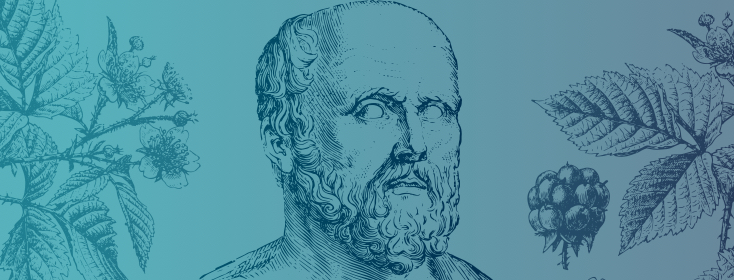10 Things To Be Thankful For this Holiday
Listed below are 10 things to be thankful for this Thanksgiving season. I didn't want to repeat my list from last year. So, this year I got a creative and came up with a list of things often overlooked.
Still, if it weren't for these ten things, what we have today would not be possible.
- Medicine Doctors. In the primitive world, they were the doctors. They roamed the wilderness searching for various herbs and spices. They experimented with these. And this is how many of our medicines came to be. One example is the muscarinic Belladonna.
- Belladonna. Ancient Egyptian Priests/ Physicians placed dried and crushed belladonna herbs on heated bricks. People with breathing trouble were to inhale the smoke. This was the world’s first nebulizer/ inhaler. This remedy was the predecessor to modern medicine like Atrovent and Spiriva.
- Priests. Believe it or not, the first physicians were priests. They healed using their prayers and herbs and spices. They became physicians. This shift occurred long ago, such as in ancient Egypt. They created recipes for helping people with breathing trouble. They came up with the first inhaler as noted above. They also helped give rise to all the medical wisdom compiled by the ancient Greeks.
- Hippocrates. He was the most famous ancient Greek physician. He is often known as the Father of Medicine. He compiled all the ancient medical wisdom into books called the Hippocratic Corpus. He gets credit for all that was in his book. Today this is plagiarism. But, in the ancient world, it was necessary to give credence to medicine. His book was the medical Bible for the next 2,200 years or so. He made all we have today possible.
- Epinephrine. It was isolated in 1901. A few years later it was tested on asthmatics. It worked like a charm to end asthma attacks. It worked fast. It was the first rescue medicine. Over the next 85 years, the chemical structure of epinephrine was fine-tuned. This is what ultimately gave us albuterol and levalbuterol.
- Electricity. There were some advancements in respiratory medicine before Thomas Edison. But, not very many. A nebulizer that produced a mist was invented by Sales-Giron in 1849. But, it required the operator to work a pump. This was a lot of work for someone who couldn’t breathe. This changed in the 1930s when the first electric nebulizer system was invented. Electricity would later lead to the first oxygen compressor.
- Nebulizers. Nebulizers are nice because they create a mist that can be inhaled. A mist does not change the chemical composition of the medicine. This assures you are inhaling the intended medicine. During the 1930s, a portable electric air compressor was invented. This made it easy to operate nebulizers. They were useful in hospitals. But they were also useful in homes. This provided a convenient means of inhaling COPD medicine.
- Oxygen Concentrators. By the 1970s, it was realized that some people with COPD have low oxygen levels. This means they need to inhale supplemental oxygen. Oxygen tanks made it possible to inhale oxygen at home. But, this meant watching tanks to make sure they still had oxygen. Tanks also had to be changed out. Oxygen concentrators solved many of these problems. Today, portable oxygen concentrators end the need to lug oxygen tanks around. This makes traveling with COPD easier.
- BiPAP and CPAP. Some people with COPD need help keeping their airways open. Some need help taking in a deep enough breath while sleeping. This is where these machines come in handy. Modern ones are lightweight and easy to operate. They are quiet and comfortable. They help people live longer and better with COPD.
- COPD Guidelines. All the wisdom of the experts is now compiled together in COPD guidelines. These help doctors stay up-to-date on all the latest wisdom about our disease. These also help “guide” physicians when deciding what medicines and therapies to prescribe. This is all to help all people with COPD live better and longer.
So much to be thankful for. So much yet to do, but so much to be thankful for.
This article represents the opinions, thoughts, and experiences of the author; none of this content has been paid for by any advertiser. The COPD.net team does not recommend or endorse any products or treatments discussed herein. Learn more about how we maintain editorial integrity here.

Join the conversation